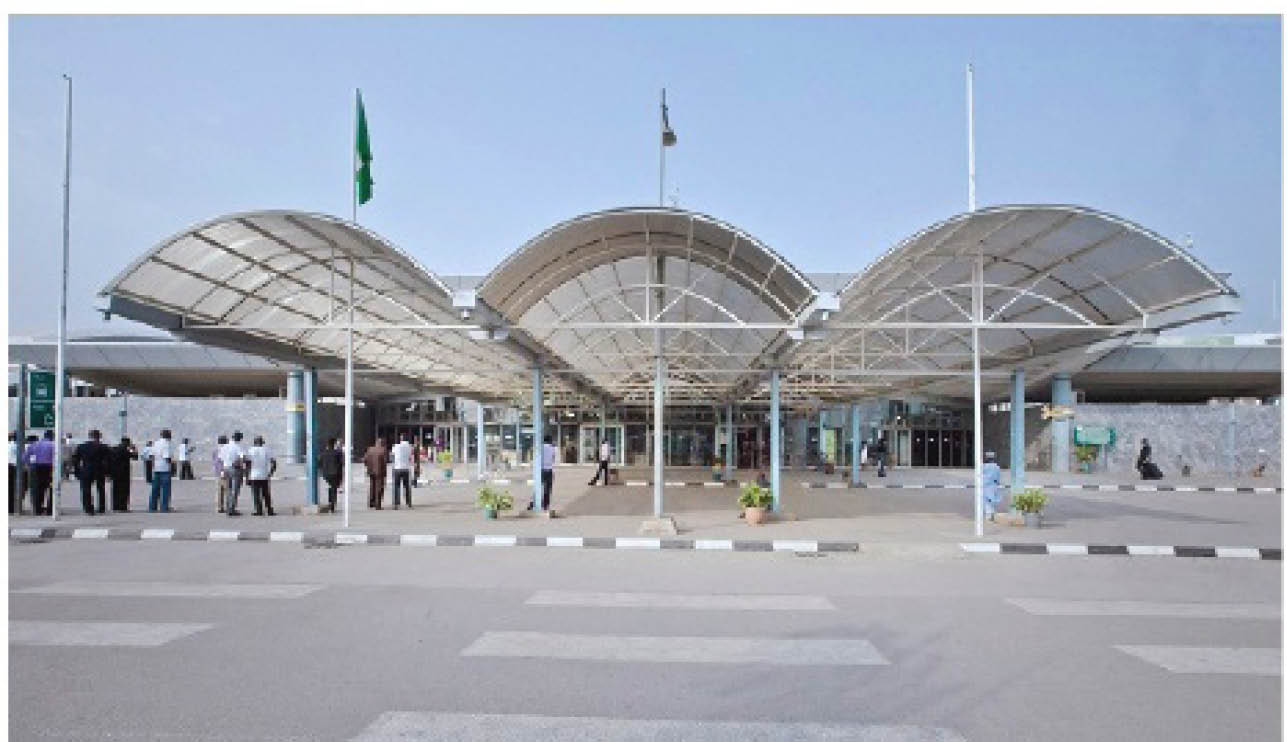Spike in airfares
In the last few weeks, Nigeria has witnessed the most expensive pricing regime in local airfares in the aviation industry, with ticket rates tripling in some routes. It is such that this week, the cheapest Kano-Abuja air ticket was N115,000. The race up started penultimate week when over the counter, an average one-hour economy class […]

Nnamdi Azikiwe International Airport Abuja
In the last few weeks, Nigeria has witnessed the most expensive pricing regime in local airfares in the aviation industry, with ticket rates tripling in some routes. It is such that this week, the cheapest Kano-Abuja air ticket was N115,000.
The race up started penultimate week when over the counter, an average one-hour economy class seat rose from N33,000 to N75,000. Its average return trip variant also climbed to N121,000 from about N60,000 a week before. Return tickets for the same class averaged N120,000. The one-way Business Class of N58,000 was sold for an average of N100,000, where available.
For instance, an Azman Air, Lagos-Kano Economy flight ticket that used to sell for N30,000 went for N55,000. The same airline sold Lagos-Abuja 10 am flight ticket at N85,000. Dana Air’s Lagos-Abuja Economy Class was sold for N56,000, compared to N29,000 average rate in the past.
And to compound matters for travellers, all the Lagos-Abuja, Lagos-Enugu, Abuja to Enugu, and flights to Owerri and Asaba flights have been fully booked for the rest of the year.
With this, air travels have suddenly been restricted to just a little segment of Nigerians.
The astronomical rise in airfares was blamed on the foreign exchange rate that hit N500 to $1 at the black market penultimate week. This exposed local airlines to more financial needs as, except workers’ salaries and ticket sale, everything else in aviation is denominated in dollars.
Also, the picketing of Arik air, which has the second highest traffic after Air Peace, meant serious disruption across the network. The insecurity across the country further increased demand for airline seats, thereby raising the rates.
In addition, the coronavirus caused airlines to reduce their itineraries, meaning limited flights for many.
Stakeholders are warning that the high airfares have come to stay as the increase covers basic costs, and not for profit. The stakeholders warned that unless the federal government bails out the local industry, airfares might further spike and become unbearable for the travelling public.
Also, the high airfares are driven by the high cost of maintenance of the aircraft. A C-check, which is required every 18 months, now costs an average of $2 million per commercial aircraft. The cost of maintenance has also forced the airlines to reduce their frequencies and routes just to be able to cut losses.
Unfortunately, there is nothing government can directly do to force down the prices as airfares are deregulated and subject to the dictates of each operating carrier.
So, it is important that the airline regulatory agencies, especially the Nigerian Civil Aviation Authority (NCAA), ensure that the operating environment does not drive up the cost. This is because travelling by road is riskier and the train services are unavailable for most parts of the country and unreliable at best.
While not really blaming the airlines for the spike in fares, this should just be temporary so as not to drive air travelling out of the reach of the average Nigerian.
The issue of the much talked about COVID-19 bailout fund for the aviation sector should be fully implemented to enable the operators to reduce pressure on liquidity.
Being that aviation is a protected sector, the federal government should also rescind the reintroduction of duties on imported spare parts and implement the approved duty waiver. Concerted support is required so that the airlines do not go out of business.
